When comparing startup investment opportunities, New York City stands out with its unparalleled access to venture capital and a diverse funding landscape. Unlike other cities, NYC offers a unique blend of industry leadership and a multicultural consumer base. While San Francisco and Boston present strong tech hubs, New York’s proximity to top talent and rich networking landscape create a compelling environment for innovation. Yet, challenges remain, prompting further exploration into its advantages and obstacles.
The Appeal of NYC’s Startup Ecosystem
New York City’s startup ecosystem captivates investors with its dynamic blend of innovation, diversity, and access to capital. This vibrant landscape thrives in a city known for its relentless pace and cultural melting pot. Entrepreneurs benefit from proximity to a dense concentration of industry leaders, fostering collaboration and mentorship. The city’s financial sector provides robust funding opportunities, supported by an array of venture capital firms and angel investors. Additionally, the presence of leading academic institutions contributes a steady influx of talented graduates keen to join the startup scene. NYC’s diverse population inspires a wide range of business ideas, catering to local and global markets. This unique ecosystem, characterized by its resilience and adaptability, continues to attract visionaries seeking to make their mark. The strong emphasis on fintech innovation ensures that startups are at the forefront of technological advancements and financial services.
Emerging Global Startup Hubs
While New York City stands as a beacon of startup innovation, other cities around the globe are emerging as formidable players in the entrepreneurial arena. Cities such as Berlin, Tel Aviv, and Singapore are carving out niches in the global startup ecosystem, attracting investors and entrepreneurs alike. Berlin’s vibrant tech community benefits from a lower cost of living compared to traditional hubs, fostering creativity and innovation. Tel Aviv, known for its technological prowess, boasts a high density of tech startups and venture capital availability. Meanwhile, Singapore’s strategic location and business-friendly environment make it an attractive destination for startups looking to expand in Asia. These cities, with their unique strengths, are becoming essential components of the global startup landscape, challenging established centers. Additionally, New York City’s robust recovery trajectory post-COVID-19 pandemic positions it favorably among other global startup hubs.
Market Potential and Consumer Reach
New York City’s diverse demographics offer startups a unique opportunity to cater to a wide array of consumer needs and preferences. Regional economic trends further bolster this potential by providing a robust framework for growth and innovation. Investors are particularly interested in how these factors position NYC startups to not only capture local markets but also expand their reach globally. Additionally, the city’s multicultural workforce enhances creativity and innovation, making it an attractive environment for entrepreneurial ventures.
NYC’s Diverse Demographics
The melting pot of cultures and ethnicities in New York City creates a unique market potential for startups seeking diverse consumer audiences. This diversity translates into a vast array of tastes, preferences, and purchasing behaviors, allowing entrepreneurs to target niche markets and cater to specialized needs. The city is home to over 800 languages, reflecting its rich mosaic of communities. This cultural tapestry offers startups the opportunity to tailor products and services to specific ethnic groups, enhancing market penetration and consumer loyalty.
Furthermore, the dense population and multicultural environment support an ecosystem where innovation thrives. Startups benefit from immediate access to a broad customer base keen for novel solutions. New York City’s demographic diversity therefore provides fertile ground for startups aiming to achieve rapid growth and broad consumer reach.
Regional Economic Trends
Amid the dynamic landscape of New York City, regional economic trends reveal a promising horizon for startup investment opportunities. The city’s robust economic framework, supported by a diverse industry presence, fuels a thriving environment for startup growth. With its strategic location as a global hub, New York offers unparalleled access to a vast consumer base both domestically and internationally.
Economic indicators, such as GDP growth and employment rates, further underscore the city’s potential as a fertile ground for innovation. The continuous influx of talent and capital enhances its competitive edge, drawing investors seeking high returns. Additionally, NYC’s established infrastructure and connectivity facilitate seamless integration with global markets, amplifying consumer reach and solidifying its status as a leading startup ecosystem.
Availability of Venture Capital and Funding Options
New York City offers a rich array of funding sources, including angel investors, venture capital firms, and crowdfunding platforms. The competitive investment landscape in the city demands that startups present compelling value propositions to attract the attention of potential financiers. This environment fosters innovation but also necessitates strategic planning to secure the necessary capital. Additionally, startups can benefit from financial assistance programs that support entrepreneurs in navigating the funding process.
Diverse Funding Sources
Steering the landscape of startup investments in NYC reveals a plethora of funding sources available to aspiring entrepreneurs. The city stands as a beacon for diverse funding avenues, ranging from traditional venture capital firms to angel investors and crowdfunding platforms. These options cater to various stages of business development, ensuring that startups have access to the necessary capital. Unlike many other cities, NYC offers an extensive network of accelerators and incubators, providing not just financial support but also mentorship and resources. Additionally, corporate venture arms and government grants further diversify the funding landscape. The abundance of financial resources in NYC empowers entrepreneurs, enabling them to innovate and scale their ventures effectively, setting the city apart as a leading startup hub.
Competitive Investment Landscape
Building on the diverse funding sources available in NYC, the city’s competitive investment landscape further distinguishes it as a prime location for startups. With an abundance of venture capital firms, angel investors, and accelerators, New York offers a robust ecosystem conducive to innovation and growth. This concentration of financial resources attracts entrepreneurs seeking both capital and strategic guidance. The presence of highly specialized investors also allows startups to find partners that align with their industry focus, whether in technology, finance, or healthcare. In addition, NYC’s global connectivity provides startups with access to international markets and investors. Compared to other cities, New York’s dynamic mix of financial expertise and cultural diversity creates a fertile ground for new ventures, enhancing its appeal as an investment hub.
Talent Acquisition and Workforce Dynamics
As the competitive landscape of New York City’s startup scene continues to evolve, talent acquisition and workforce dynamics emerge as pivotal factors in determining a company’s potential for success. NYC is renowned for its diverse talent pool, drawing professionals from various sectors, including technology, finance, and media. Startups benefit from access to a wide range of skilled workers, fostering innovation and growth. However, the demand for top talent is high, intensifying competition among companies and often leading to increased salary expectations. This dynamic creates challenges for startups trying to balance budget constraints with the need to attract qualified personnel. Successful startups often employ creative strategies, such as offering flexible work arrangements and equity options, to secure the talent necessary for sustained growth. Additionally, Central Park serves as a popular meeting and networking spot for entrepreneurs and potential hires, enhancing collaboration within the startup community.
Navigating Regulatory and Business Environments
Maneuvering the complex regulatory and business environments in New York City presents another layer of challenges for startups beyond talent acquisition. The city’s intricate web of local, state, and federal regulations can be intimidating for new enterprises, potentially impeding swift market entry. NYC’s stringent zoning laws, high taxes, and compliance costs often require startups to allocate significant resources to legal and administrative needs. In contrast, other cities may offer less burdensome regulatory landscapes, allowing startups to focus more on growth and innovation.
Moreover, New York City’s competitive business atmosphere demands strategic navigation to secure funding and market share. While NYC provides unparalleled access to investors and industry networks, startups must adeptly manage these relationships to thrive amidst robust competition.
Frequently Asked Questions
What Are the Potential Risks of Investing in NYC Startups?
Investing in NYC startups involves risks such as high operational costs, intense competition, regulatory challenges, and economic fluctuations. Investors must also consider market saturation and potential talent shortages impacting the growth and sustainability of these ventures.
How Do Living Costs in NYC Impact Startup Success?
High living costs in NYC can strain startup budgets, affecting operational expenses and talent acquisition. Startups may struggle with financial sustainability, as they often require significant resources to attract skilled workers and manage office space in a competitive market.
What Role Does Government Policy Play in Startup Growth?
Government policy greatly influences startup growth by providing funding, tax incentives, and regulatory support. Policies can either foster a thriving entrepreneurial environment or create barriers, impacting startups’ ability to innovate, attract investment, and scale effectively.
How Do NYC Startups Compare in Sustainability Initiatives?
NYC startups demonstrate a strong commitment to sustainability initiatives, often integrating eco-friendly practices and technologies into their business models. This focus aligns with broader trends in urban centers prioritizing sustainable development and innovation to address environmental challenges.
What Are the Common Exit Strategies for NYC Startups?
NYC startups commonly pursue exit strategies such as acquisitions by larger firms, initial public offerings (IPOs), or mergers. These strategies are influenced by industry trends, market conditions, and the startup’s growth stage and profitability potential.
Conclusion
In conclusion, New York City’s startup ecosystem stands out as a premier investment destination due to its robust access to venture capital, diverse funding avenues, and an unparalleled multicultural market. Although cities like San Francisco and Boston present formidable tech hubs, NYC’s unique combination of industry leadership and proximity to top talent creates a fertile ground for innovation. Despite facing regulatory challenges, the city’s collaborative networking landscape continues to attract startups seeking dynamic growth and substantial investment opportunities.

